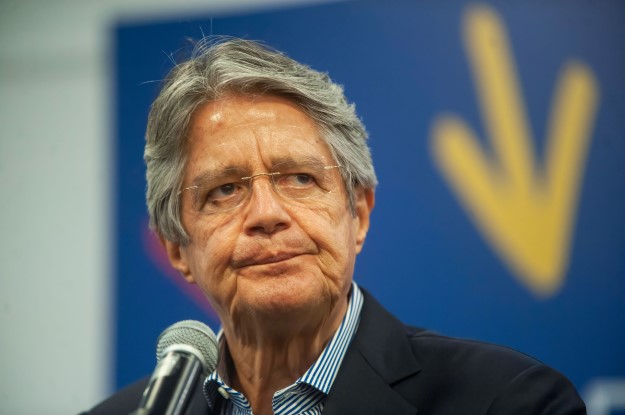QUITO – When he takes office as Ecuador’s president on May 24, Guillermo Lasso will finally have a shot at the market-oriented overhaul of the country’s economy and institutions that he has promised for three consecutive presidential campaigns.
The road ahead, however, may be tougher than he ever anticipated.
The former banker will enter the presidential palace with a weak mandate, limited fiscal resources and plenty of opponents in Congress. In the first round of this year’s election, Lasso earned just 20% of the vote, and his party actually lost seats in the legislature. In fact, Lasso won April’s runoff with fewer votes than in the election he lost in 2017, thanks to a historic level of protest votes.
Still, markets have high hopes that Lasso can reverse years of economic stagnation exacerbated by the pandemic. Ecuador’s bonds soared last month after the businessman’s shock victory over Andrés Arauz, the left-wing candidate of former President Rafael Correa. As president, however, he will be forced to walk a tightrope between a liberalization agenda on one hand and a center-left leaning Congress and frustrated population on the other.
In the 137-seat Congress, Correa’s allies will have the largest bloc with 49 seats, and the indigenous leftist Pachakutik party will have unprecedented influence, holding about 45 seats in alliance with the center-left Democratic Left party. In contrast, Lasso’s center-right Creating Opportunities party has just 12 legislators, and an early alliance with the right-wing Social Christian Party fell apart on May 14.
The incoming government will thus have to tone down some of its more market-friendly proposals on key issues such as tax, labor and social security reform and make significant policy concessions to secure legislative support. For example, even though Lasso has ruled out enacting new taxes, potential allies in Congress are likely to demand some sort of progressive tax, even if temporary, on income, wealth or big corporations. The pandemic has already prompted similar debates elsewhere in Latin America and around the world. A privatization or free trade agenda will also face fierce opposition from these groups.
The Lasso administration will also have to contend with an extremely frustrated public that is looking for government support as they deal with diminished incomes, job losses and the virus’ continued threat to their health. Most Ecuadorians, therefore, will judge Lasso on whether he is able to restart the economy, support the most vulnerable and protect them from COVID-19. Hence, ramping up the country’s vaccination program and strengthening the safety net will be imperative for the Lasso administration in its first 100 days. For example, reaching out early to specific social groups via impactful social programs (like direct cash transfers, for example) will be key to building the necessary political leverage to attempt more significant long-term reforms. This, however, will be no easy task in the context of the delicate state of public finances.
The precarious social context also means that Lasso will have to be cautious in advancing reforms that appear radical, and which would likely face significant pushback. Resistance would come primarily from the electorate which voted for the correístas, who still enjoy high political support, but also from many indigenous voters in the highlands who spoiled their ballots and are likely to show little patience towards the new government. Recent protests in Colombia against tax reform highlight just how delicate the social panorama in much of the region is. While in Ecuador the threat of mass unrest has been latent since the explosive October 2019 national protests, it could easily materialize again.
Finally, a Lasso government must contend with many state institutions, like the electoral authority or the comptroller general’s office, whose leadership was replaced during Moreno’s 2018-2019 controversial institutional reform process aimed at dismantling the correísta political order and is now being challenged, not only by correístas, but by most political forces. Weak and illegitimate state institutions risk creating political instability and will fuel demand for anti-establishment populist alternatives in the next political cycle, or even before.
This complex socioeconomic and political environment will demand compromise and caution from Lasso’s government and will limit the pace and magnitude of his reform agenda. Nonetheless, given the populist challenges faced by candidates who endorse liberalism and democracy around the globe, the mere fact that a liberal, pro-democracy and business-friendly candidate was elected in Ecuador, of all places, is encouraging in itself. The likelihood of populist victories in upcoming elections around South America just goes to show how rare the opportunity presented by Lasso’s triumph is, offering the chance for Ecuador to transition away from almost two decades of continued populist rule, towards a rule-of-law based liberal democracy.
—
Sebastián Hurtado is the founder and President of Prófitas, a political risk consultancy based in Quito.




